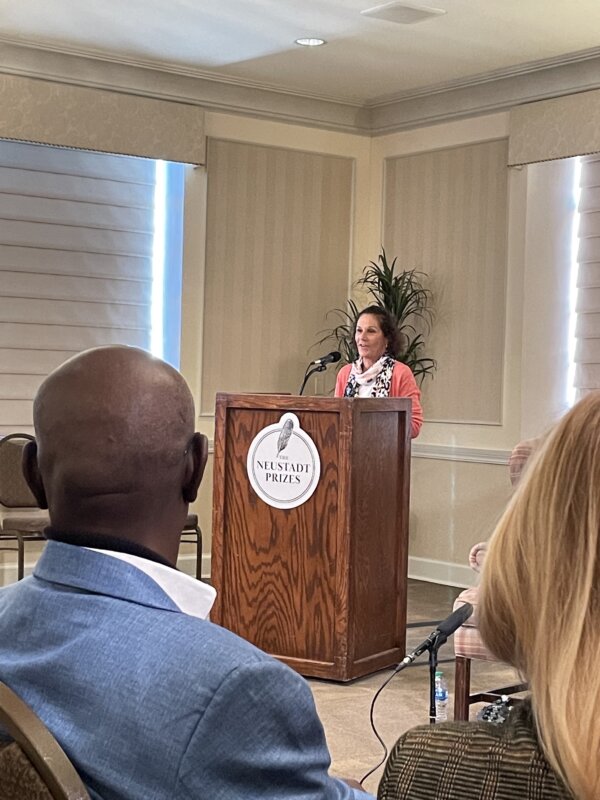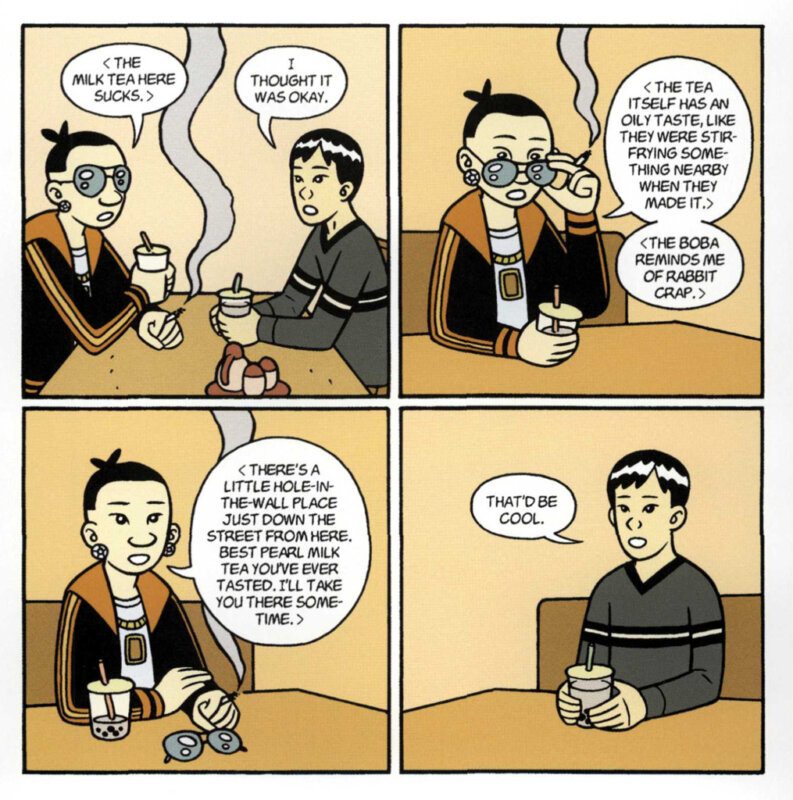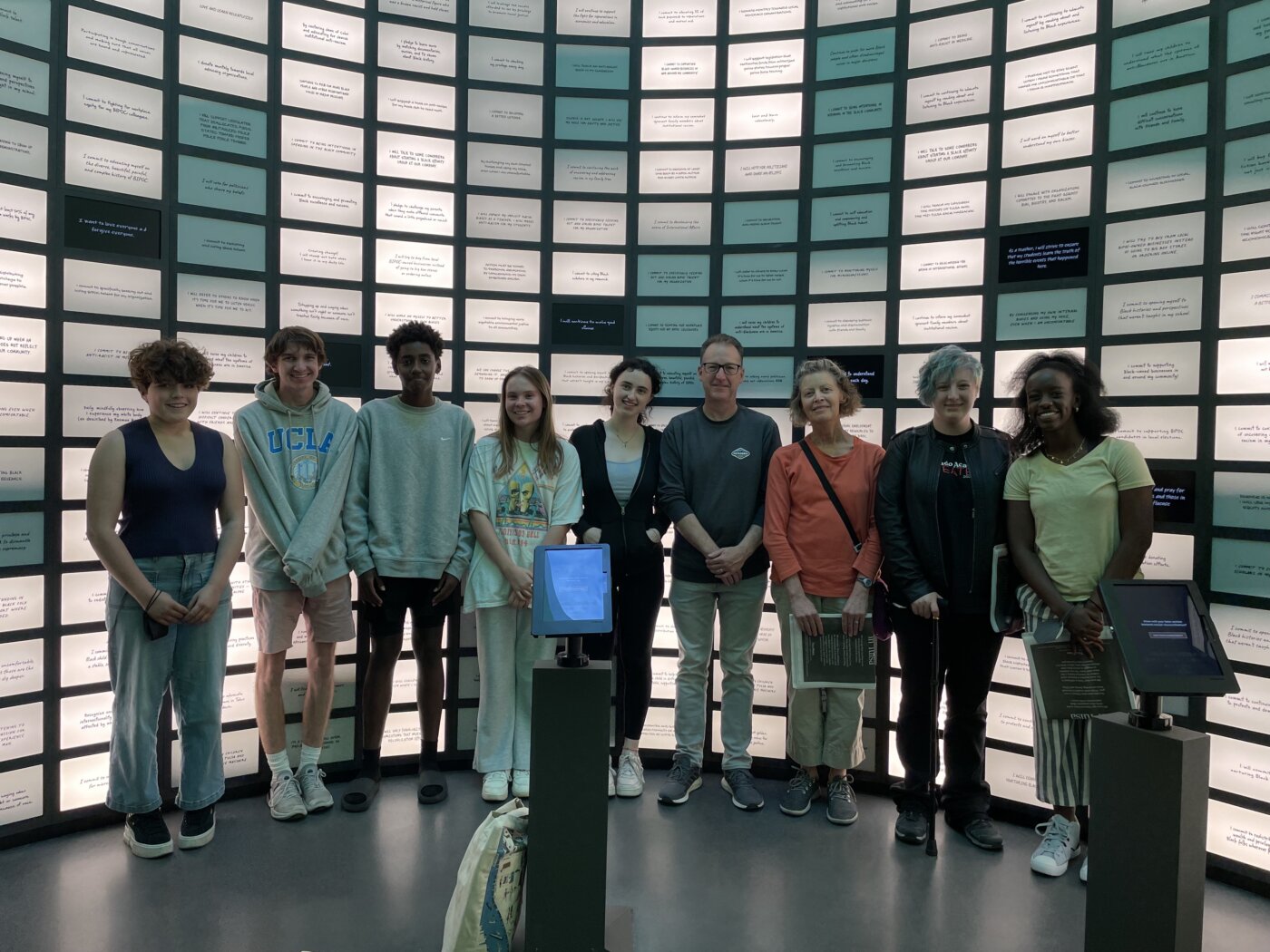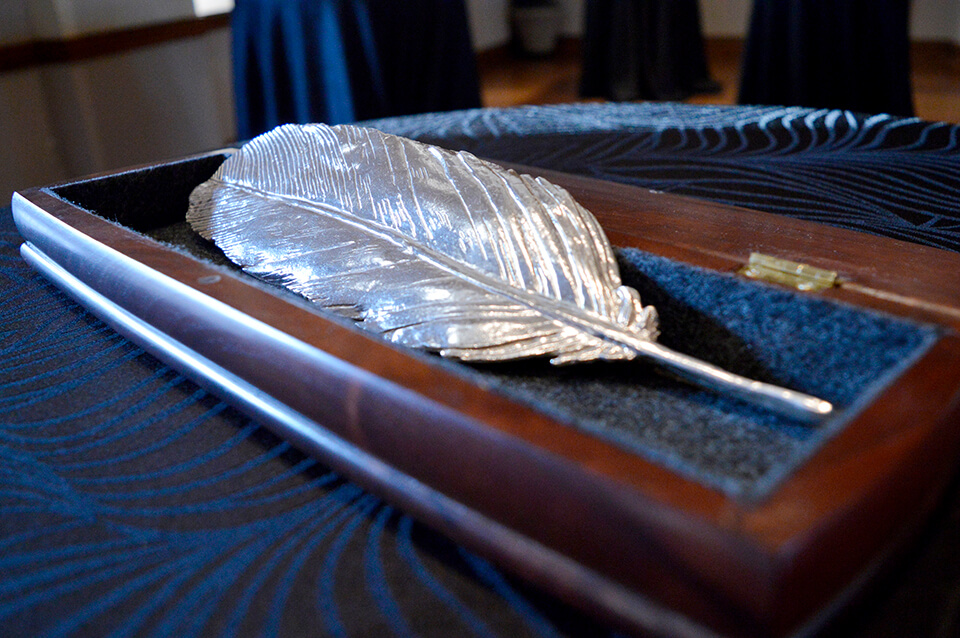For more than a decade, the Neustadt Scholar Program at Colorado Academy has offered Upper School students the one-of-a-kind opportunity to engage first-hand in the festivities around two of the most prestigious awards in world literature, the Neustadt International Prize for Literature and the NSK Neustadt Prize for Children’s and Young Adult Literature. A group of CA students, who are selected through a writing competition, travel each fall to the Neustadt Lit Festival at the University of Oklahoma in Norman, Okla., where both of the awards are based, and get the chance not only to meet face-to-face with world-renowned authors such as Senegalese writer Boubacar Boris Diop and American graphic novelist Gene Luen Yang, but also to share their own writing with the authors, discuss literature with the award jurors, interact with university faculty, and visit world-class libraries and museums.
“This is an incredibly special experience for CA students,” says English teacher Dr. Jon Vogels, who has been involved with the program since its inception in 2013, when he was serving as Upper School Principal. “Our students are truly treated like VIPs, participating in college-level readings and seminars, spending time with award-winning authors, and pursuing their passion for reading and writing at the highest level.”

The program was inaugurated through a generous gift from CA parent Kathy Neustadt, whose parents, Walter and Dolores Neustadt, endowed the Neustadt International Prize for Literature at the University of Oklahoma in 1972. Kathy and her two sisters, Nancy and Susan, are the benefactors (and the “NSK”) of the Neustadt Prize for Children’s and Young Adult Literature, which they established in 2003. The Neustadt Family Foundation permanently endowed the Neustadt Scholar Program at CA in 2017.
Since its inception, according to English teacher and REDI Lab founder and Director Tom Thorpe, the goal of the program has been to offer CA students a literary experience unlike any other. “The Neustadt Scholar Program combines the opportunity to travel with the chance to get to know and be recognized by artists and scholars of international stature.”
Thorpe, who, as an Oklahoma native and friend of Kathy Neustadt, was the first to suggest a more significant connection between the awards and CA, adds, “This lets kids see themselves as writers in ways that they may have never done before.”
A global lens
The partnership with Neustadt and the University of Oklahoma underscores the commitment by CA’s English Department to an evolving curriculum that places inclusive engagement with global literature at the forefront.
The Neustadt International Prize for Literature is a biennial award of $50,000 sponsored by the University of Oklahoma and World Literature Today, the university’s literary magazine. It is the first international literary award of this scope to originate in the United States, and is commonly known as “America’s Nobel.” In the prize’s 45-year history, 30 of its laureates, jurors, or finalists have gone on to win a Nobel Prize. The award is given in recognition of outstanding achievement in poetry, fiction, or drama, and over the years it has gone to acclaimed authors such as Haitian writer Edwidge Danticat, Colombian magic realist Gabriel García Márquez, and Mexican poet Octavio Paz.
In alternating years, the University of Oklahoma and World Literature Today award the NSK Neustadt Prize for Children’s and Young Adult Literature, which recognizes a living writer with significant achievement, either over a lifetime or in a particular publication. The essential criterion for awarding the $35,000 prize is that the writer’s work has a positive impact on the quality of children’s literature. Laureates have included Ghanaian author-illustrator Meshack Asare, Cuban American author Margarita Engle, and Palestinian American poet Naomi Shihab Nye.
“At the heart of our English literature classes is critical thinking, getting kids to see things from multiple lenses, listen to diverse voices, [and] think about the craft of writing in different ways,” explains Vogels. “The Neustadt prizes and their global roster of laureates align perfectly with this. At the same time, the award-winning books and authors have allowed us to create very direct ties into our curriculum that help us continue making space for more voices outside of the canon of English-language, mostly British, literature.”

For CA students, the Neustadt connection brings many benefits. Early on, the Neustadt International Prize for Literature winner Mia Couto, a Mozambican author, so inspired Vogels that he worked to create an African Literature elective that is now a hallmark of the Upper School English curriculum. And as the English Department moves away from traditional Advanced Placement (AP) courses towards CA’s own brand of Advanced Studies and Research (ASR) offerings, globally-inspired electives will continue to gain in importance.
Explains Vogels, the Ninth Grade Coming of Age in the World class regularly features the work of NSK prize winners, such as 2023 laureate Gene Luen Yang, whose graphic novel American Born Chinese was already a part of the course. Tackling issues of immigration and internalized racism by asking young readers to synthesize disparate and complicated modes of written communication, “Yang’s work is a perfect fit for our incoming Ninth Graders,” says Vogels.
Lasting impact
It was another NSK winner, Naomi Shihab Nye, whose work originally sparked the idea for the Neustadt Scholar Program, relates Thorpe.
“Betsey Coleman, the English Department Chair at the time, and I both loved Nye’s work, and we were already using it in our classes. We worked closely with Kathy on building a travel program around the award ceremony for Nye, and we also created a robust curriculum based on the author’s work. It went so well that we started talking about how to make it a permanent offering in the Upper School.”
That led to the endowment, Thorpe explains, which would support not only travel to Oklahoma for faculty and students, but also the unique writing competition Upper Schoolers enter to be selected, as well as the creation of a custom curriculum guide by CA faculty members.
The student writing competition, says Thorpe, isn’t a typical one. Upper Schoolers must consider a prompt tied closely to the work of the current Neustadt winner, and are asked to create either a personal reflection or an original work modeled on that of the author. English and history teachers then judge the submissions using the same “positive elimination” method that is employed by the Neustadt jurors themselves.
“Instead of just choosing a winner,” elaborates Thorpe, “positive elimination means casting votes for a number of entrants through multiple rounds of voting, until a winner with the largest number of votes emerges. Virtually all submissions receive votes—no one is voted ‘against.’ In this way, we signal to all students that we believe in them as writers.”
The custom curriculum CA faculty members create based on the writing of each year’s award winner is also unique. English and history teachers work together to select several of the author’s works for study, and design robust lesson plans for students in Grades 9-12 (some years 6-12) that include relevant historical background, biographical information, book excerpts, critical responses, writing exercises, project ideas, and rubrics for assessment—all aimed at raising awareness of the award winner’s work, engaging students in the author’s main ideas, and encouraging practice with core reading and writing skills.
The curriculum packages, which must be aligned with Oklahoma’s state education standards, are distributed through the Neustadt Education Network, which makes them available freely for schools throughout Oklahoma and beyond.
“I’m very proud of our curriculum work around the Neustadt winners,” says Vogels. “It demonstrates that CA leads the way in teaching these writers at the middle school and high school level in the United States.”
Program growth
Both Vogels and Thorpe—along with the Neustadt Prize organization—are eager to see wider dissemination of the CA-authored curricula, and a newly formed partnership with the University of Denver may facilitate that.
“Thanks, again, to the efforts of Kathy Neustadt,” says Vogels, “Neustadt winners will give a talk each year at DU. This gives CA itself a connection with DU, which will not only benefit CA students pursuing advanced topics in ASR electives, but could lead to our curricula finding their way to other schools in the Denver area which have their own connections to DU.”
Vogels himself has worked to expand and deepen the relevance of the Neustadt Scholar Program in recent years. In 2022, he broadened the travel itinerary to include numerous sites of historical significance in Oklahoma, including Tulsa and the Greenwood Rising museum, which occupies the grounds where the Tulsa Race Massacre occurred 100 years ago. Students also visited the Oklahoma City Bombing memorial, which pays tribute to the victims of that act of domestic terrorism in 1994.

“Most of the students had only a vague knowledge of these events,” Vogels acknowledges, “so it was an excellent opportunity for them to learn more about these milestones in our nation’s history.”
Still, the encounters with internationally-regarded authors will remain the centerpiece of the Neustadt Scholar Program at CA. When this year’s Scholars sat down with Senegalese winner Boubacar Boris Diop, says Vogels, the impact was profound.
Honored for his best-known work, Murambi: The Book of Bones, a searing account of the 1994 Rwandan genocide against the Tutsi, Diop is a champion of African cultural independence. After interacting with the 76-year-old author during a private dinner, Senior Sofia Meltzer noted that she “felt a deep, newfound appreciation for African literature,” while Sophomore Caleb Mengistu valued Diop’s explanation about “the complexity of the solution to advancing African culture.” And the Senegalese-born father of another CA participant, Tenth Grader Aziza Diallo, admitted that the thought of his daughter having dinner with one of the most prominent writers of his homeland left him nearly speechless.
“Our connection to the Neustadt awards and the University of Oklahoma broadens students’ view of the world and extends our academic goals, as well as our DEI efforts, in measurable ways,” says Vogels. “The Neustadt Scholar Program is a wonderful opportunity that will continue to benefit CA for years to come.”
